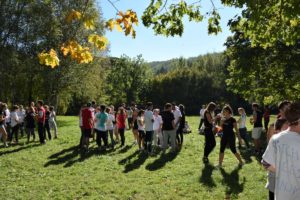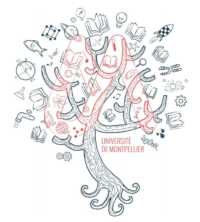PRACTICAL LIFE / STUDENTS
Students on our "Health Engineering in Montpellier" course spend their university years in the company of two key organizations:
The timetable,with weeks of classes, vacations, internships and exams. To find out everything you need to know about our organization, consult our year calendar for L2, L3, M1, M2.
Exam organization Examination dates are listed in the calendar for the year, but you can also find out about examination procedures as approved by the University of Montpellier for this academic year.
The student association, led by the BDEISM (Bureau des Etudiants Ingénierie de la Santé Montpellier - Montpellier Health Engineering Students' Office) is a key player in the practical life of students, with all its services and events. It is the link between students, the course and alumni in the professional world.
BDEISM 
In the event of a problem, current students may submit a complaint to complaintby the university.
Scientific integrity charter
Researchers are faced with increasingly complex situations, due in particular to developments in the conduct of scientific research (internationalization, use of digital technology), the pressure of evaluations, but also the constraints of publication and the selectivity of funding applications. Researchers and teacher-researchers must therefore adopt an approach of scientific integrity in the conduct of their research activities and in the context of training for and through research.
On January 30, 2017, the University of Montpellier,through its Board of Directors,adopted a Charter of Good Practices in Scientific Integrity, in order to promote a genuine culture of scientific integrity. It commits the entire UM research community to adopting transparent and responsible practices, based on guiding principles:
- compliance with current legal standards, customs and professional practices;
- intellectual honesty in developing and implementing a research project (from dissemination to commercialization);
- fair access to sources, their citation, the determination of intellectual property rights, the authorship of research work, the protection and protection of intellectual property rights.
- storage and use of data collected ;
- respect for the rights of all those who contribute to the production of research work, and protection of animals, biodiversity and the environment.
- the environment (whether in basic or applied research);
- the sound management of research funds and the guarantee of objectivity, independence and impartiality vis-à-vis funding bodies.